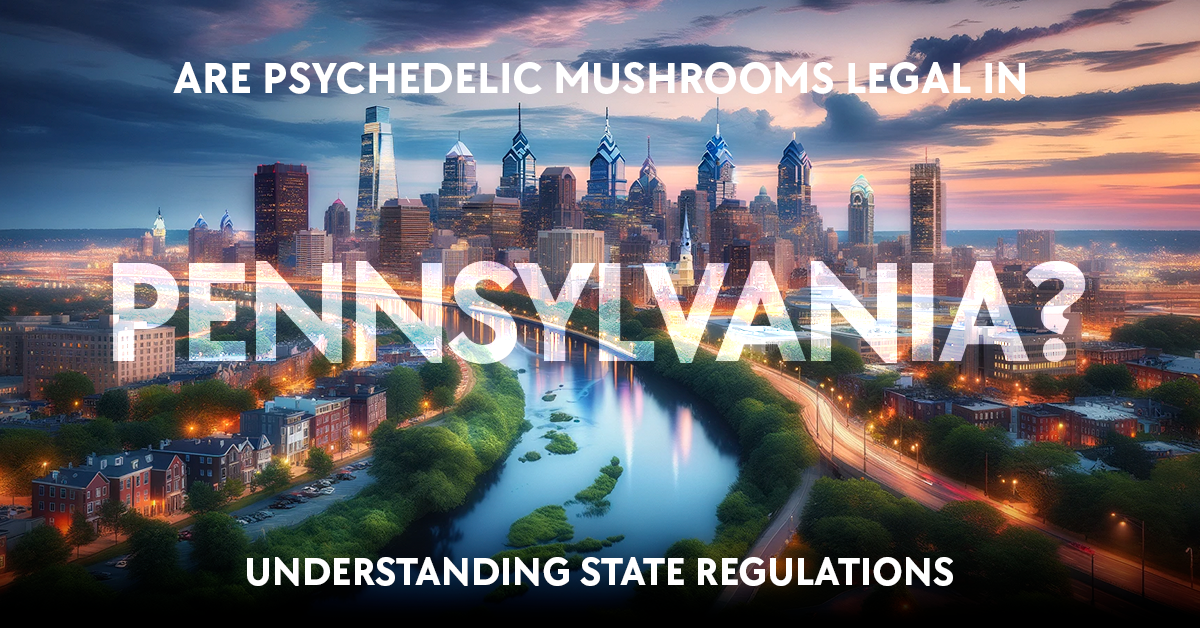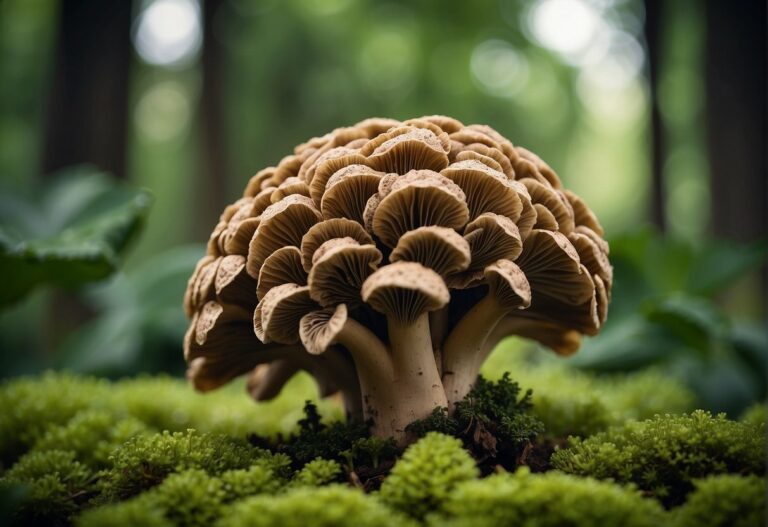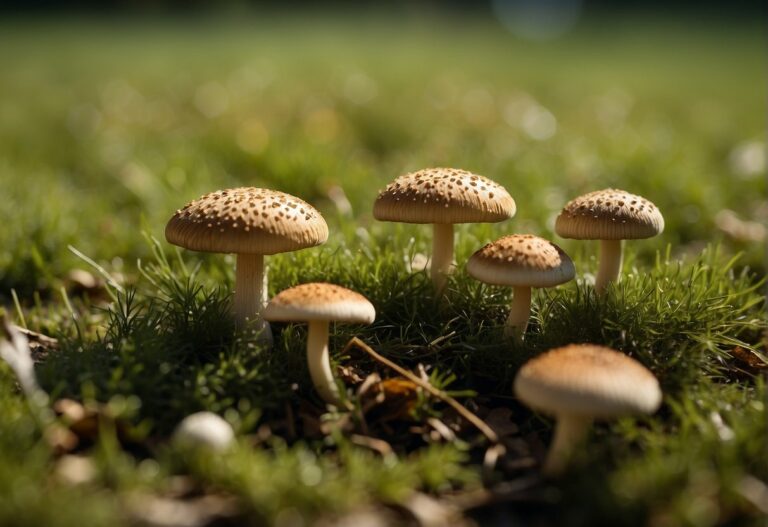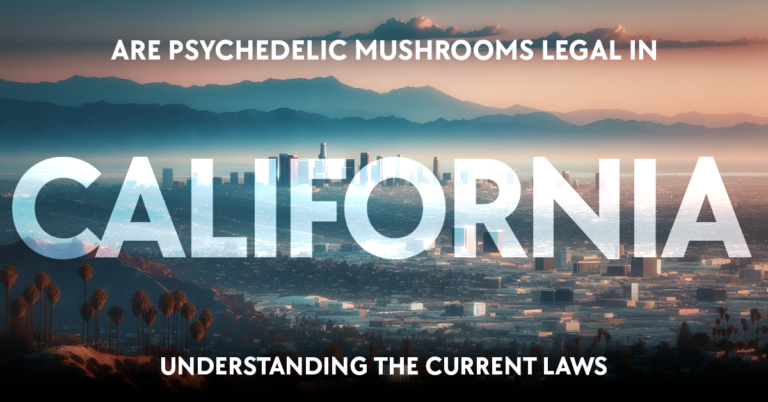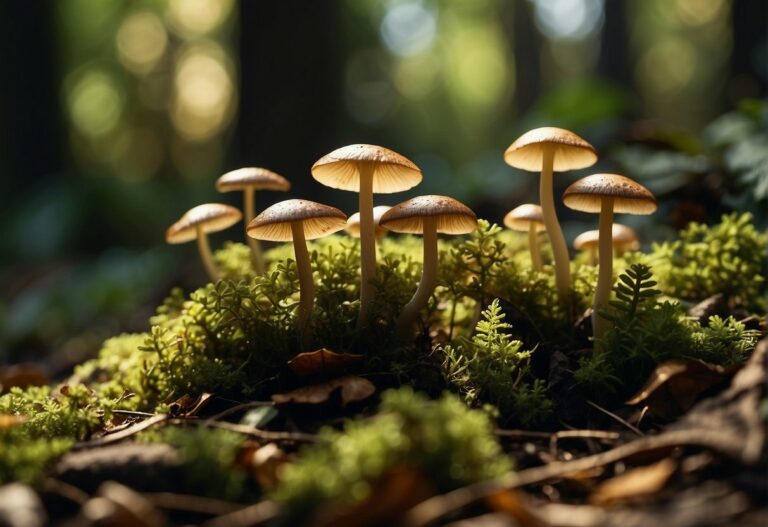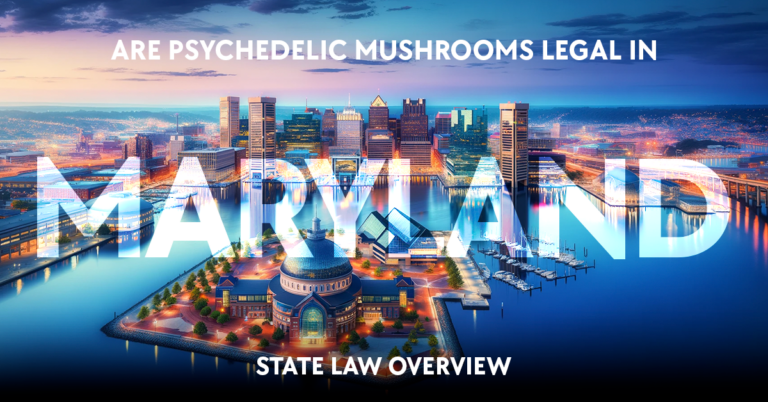In the realm of drug policy, the legal status of psychedelic mushrooms remains a complex issue. You may wonder about the legality of these substances in different states, including Pennsylvania. As of the current knowledge, psychedelic mushrooms – also known scientifically as psilocybin mushrooms – are classified as Schedule I controlled substances under Pennsylvania law. This classification entails that they are not legal for recreational or medical use.
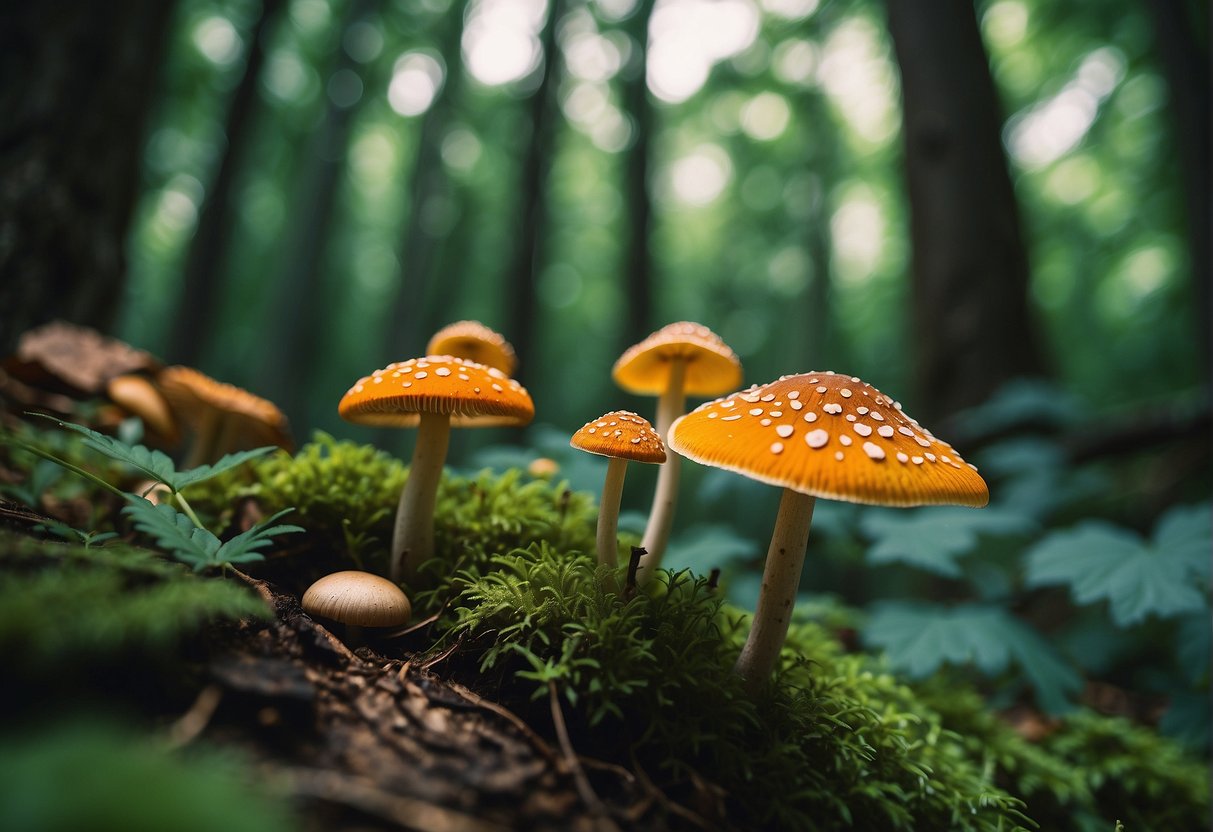
However, legal landscapes are ever-evolving, and there have been initiatives in various parts of the United States to change the legal status of psychedelic substances. For example, some places, like Oregon, have introduced measures to allow the legal use of psilocybin, but such changes are not reflective of the laws in Pennsylvania. While there has been growing interest in the potential therapeutic benefits of psychedelics, leading to academic research and clinical trials, these activities are strictly regulated and do not indicate a shift in the legality for personal use.
Your understanding of psychedelic mushrooms’ legality should also note efforts made to decriminalize such substances in different regions, acknowledging the distinction between decriminalization and legalization. In Pennsylvania, recent legislative efforts have aimed to explore the medical potential of these substances, with proposals put forth to fund studies into their medical benefits. Despite these steps, as of this writing, psilocybin mushrooms remain illegal in Pennsylvania, and possession or use can result in legal repercussions.
Legality of Psilocybin in Pennsylvania
Table of Contents
https://www.youtube.com/watch?v=nsOP-zPDjww&embed=true
In Pennsylvania, the legality of psilocybin mushrooms remains a complex issue caught between state law enforcement and ongoing legislative discussions. Your understanding of this issue is crucial amid a shifting landscape of drug policy reform.
State Law vs. Federal Regulations
Under both Pennsylvania state law and federal regulations, psilocybin is classified as a Schedule I controlled substance. This classification indicates a drug with a high potential for abuse and no accepted medical use, according to the Drug Enforcement Administration (DEA). Therefore, possession and use of psilocybin mushrooms are illegal in Pennsylvania, with no exceptions for medical or personal use.
Current Bills and Legislature Movements
The Pennsylvania legislature has not passed any bills that change the legal status of psilocybin. However, lawmakers, including some with bipartisan support, have introduced legislation in other states that may inspire similar movements within the Pennsylvania House and Senate in the future.
Penalties for Possession and Use
If you are found in possession of psilocybin in Pennsylvania, the penalties can be severe. Possession is considered a misdemeanor, and the consequences could range from fines to arrest and jail time, depending on the amount possessed and prior offenses.
Decriminalization Efforts
In Philadelphia, activists and nonprofit organizations have pushed for decriminalization, leading to a situation where the city has decriminalized the possession of small amounts of psilocybin. Yet, this does not change the substance’s overall legal status in the state.
Comparison with Other States
Pennsylvania’s stance on psilocybin is more conservative compared to states like Oregon and Colorado, where psilocybin has been decriminalized or legalized for certain uses. California, Connecticut, and a number of other states have also seen efforts to reform psilocybin laws.
Psychedelic Reform Movements
Reform movements across the country are gaining traction, providing a reason for hope for activists. These movements often receive support from nonprofits and are sometimes centered around introducing measures on state ballot initiatives, which allow voters to decide directly on these issues.
Federal Classification and Implications
Despite any state-level decriminalization efforts, psilocybin remains a Schedule I controlled substance under the Controlled Substances Act. This means that psilocybin mushrooms, including their spores, are considered a restricted substance federally, which can lead to implications for you even in states with more progressive policies.
Medical Research and Potential

Exploring the landscape of medical research regarding psychedelic mushrooms underscores their potential in treating various mental health conditions. From ongoing clinical trials assessing their efficacy to the reevaluation of their legal status, psilocybin—the active compound in these mushrooms—promises new avenues for treatment-resistant cases.
Current Research on Psilocybin and Mental Health
Researchers are actively examining how psilocybin can play a role in treating mental health disorders like depression and PTSD. Clinical trials point to psilocybin’s ability to facilitate profound therapeutic experiences, potentially revolutionizing the treatment landscape.
FDA Involvement and Drug Rescheduling
The FDA has designated psilocybin therapy as a breakthrough therapy for treatment-resistant depression, signaling its medicinal benefits and paving the way for accelerated development and review processes.
Treatment-Resistant Conditions and Psilocybin
Psilocybin shows promise in treating conditions that have historically been resistant to conventional treatments. This includes severe cases of depression and anxiety, which affect a significant portion of the population.
Veterans, First Responders, and Mental Health
Funding is being directed to study how psilocybin can benefit veterans and retired first responders battling chronic mental health conditions. Lawmakers like Tracy Pennycuick and advocates such as Brett Waters recognize the urgency in addressing mental health crises among these groups.
Comparisons to Other Psychedelics and Substances
Psilocybin is one of several substances under investigation. Others include LSD (lysergic acid diethylamide), MDMA (Ecstasy), ketamine, DMT (present in Ayahuasca), ibogaine, and mescaline. Comparative studies are integral to establishing psilocybin’s unique properties and potential as a medical treatment.
Cultivation and Availability
In Pennsylvania, the complex legal landscape surrounding psychedelic mushrooms, specifically those containing psilocybin, affects both their cultivation and availability. As you navigate this topic, it’s crucial to understand the legal implications, the proliferation of spores, and the role of local ordinances.

Legal Implications of Cultivation
Cultivating psilocybin mushrooms is illegal under federal law, as psilocybin is classified as a Schedule I controlled substance. In Pennsylvania, manufacturing, delivering, or possession with intent to manufacture or deliver such substances incurs severe penalties. Knowing the legal status of these fungi is essential before considering cultivation to avoid potential legal repercussions.
Availability and Proliferation of Psilocybin Spores
Although the cultivation and possession of psilocybin-producing mushrooms are illegal, the spores themselves do not contain psilocybin and are not regulated under federal law. This legal gray area allows for the sale of spores intended for microscopy and educational purposes. However, once you use these spores to cultivate mushrooms, you could be breaking the law.
Local Ordinances and Enforcement
In Pennsylvania, while the state law reflects federal illegal status, Philadelphia’s city councils and local governments have varying approaches to law enforcement pertaining to psychedelics. Some cities aim to prioritize other law enforcement tasks over the prosecution of psilocybin cases. It’s important for you to verify the stance of your local city council as local ordinances can influence the enforcement of these laws.
Public Opinion and Social Impact
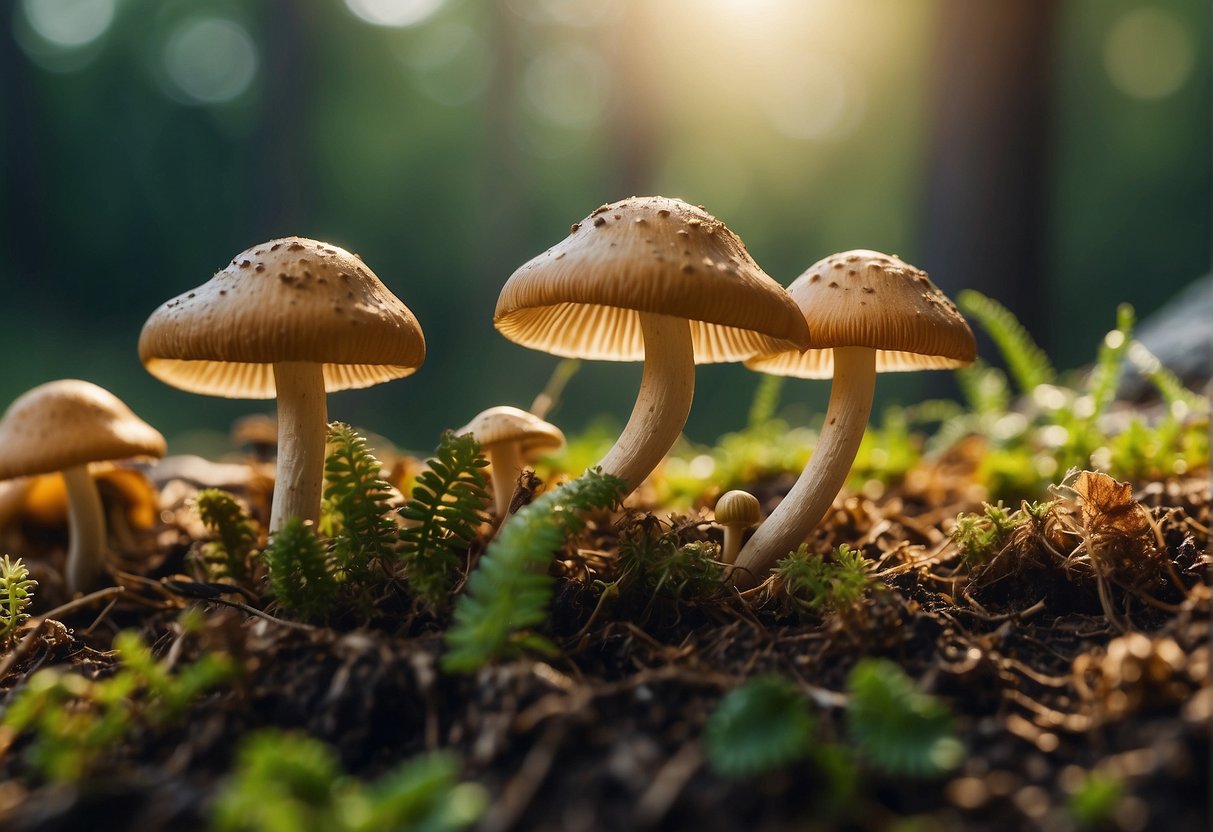
Your understanding of the legal status of psychedelic mushrooms, specifically in Pennsylvania, is enhanced by recognizing the public opinion and its social implications. Insights into society’s perception, education around psychedelics, and the media’s influence, all shape the journey towards acceptance or rejection of these substances.
Perception of Psychedelics in Society
The perception of psychedelics within society has historically been mixed, but recent years have seen a shift towards more openness to their potential therapeutic benefits. In states like Washington and New Hampshire, discussions around decriminalization have opened the door for considering psychedelics beyond their recreational use, reflecting growing social acceptance. You’ll notice that while stigma still exists, there’s a turning tide as public opinion becomes more informed about the possible clinical advances psychedelics could offer.
Advocacy and Public Education
Advocacy groups across the United States, including within Pennsylvania, are tirelessly working to educate the public about psychedelics. Public education campaigns are aiming to destigmatize their use and promote awareness of potential medical applications. Groups in states like Utah and Oklahoma emphasize how psilocybin, the active compound in many psychedelic mushrooms, may aid certain mental health conditions, pushing for informed discussion rather than dismissive attitudes.
Impact on Communities and Social Groups
The impacts of psychedelics on communities and social groups are complex. In states like Missouri and New Jersey, you might observe a diverse landscape where some communities support decriminalization and others caution against it. The potential impact of psychedelics, whether as intoxicants or therapeutic aids, can vary widely across social groups, typically influenced by socioeconomic factors and cultural backgrounds.
Role of Media and Public Figures
Lastly, the media and public figures play a substantial role in shaping the narrative around psychedelic mushrooms. In Pennsylvania and beyond, positive media representation and endorsements by influencers can greatly enhance public opinion and awareness. It’s important for you to consider how film portrayals, news stories, and statements from respected public figures contribute to a broader understanding and destigmatization of psychedelics.
Frequently Asked Questions
Navigating the legal landscape of psilocybin mushrooms in Pennsylvania can be complex. This section answers key questions on the legal status, penalties, and legislative movements regarding psychedelic mushrooms in the state.
What is the legal status of psilocybin mushrooms in the state of Pennsylvania?
Psilocybin mushrooms are classified as a Schedule I controlled substance in Pennsylvania, which means they are illegal to possess, sell, or distribute. The state follows the federal classification, deeming psilocybin to have a high potential for abuse and no accepted medical use.
Can individuals possess or cultivate psilocybin mushrooms without penalty in Pennsylvania?
No, individuals cannot legally possess or cultivate psilocybin mushrooms in Pennsylvania. Engaging in either activity could result in prosecution under state law.
Are there any ongoing legislative efforts to change the legality of psychedelic mushrooms in Pennsylvania?
As of now, there are no active legislative efforts in Pennsylvania specifically targeting the change in legality of psychedelic mushrooms. Any such change would be significant news and would require careful tracking of state legislative activities.
What are the penalties for the possession or distribution of psychedelic mushrooms in Pennsylvania?
The penalties for possessing or distributing psychedelic mushrooms in Pennsylvania include potential jail time and significant fines, but these will vary depending on the quantity and intent (e.g., personal use vs. distribution).
Is psilocybin therapy allowed under any circumstances in Pennsylvania?
Psilocybin therapy is not currently recognized or allowed in Pennsylvania. Any therapeutic use of psilocybin would be against state law, as it is not accepted by the state’s medical framework.
Has there been any movement in Pennsylvania towards decriminalizing natural psychedelics?
There has been no significant movement in Pennsylvania towards the decriminalization of natural psychedelics. Laws and policies remain strict regarding substances like psilocybin mushrooms.

